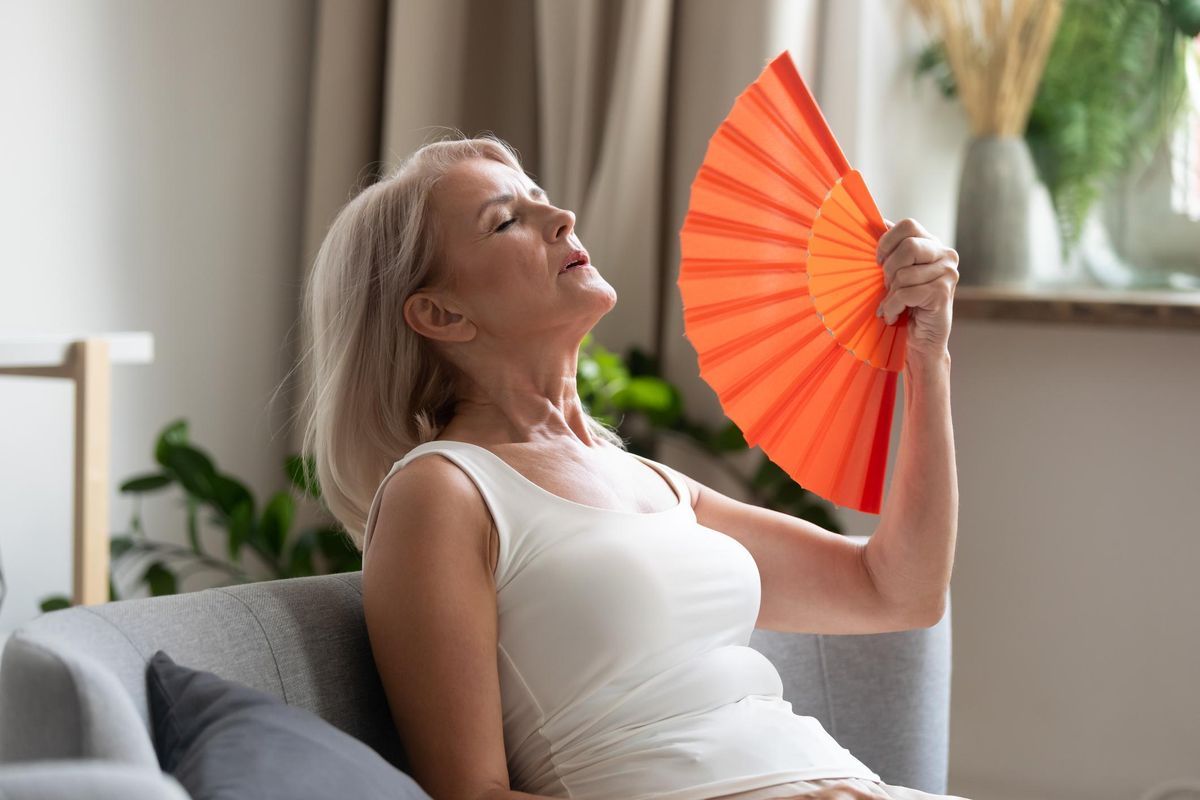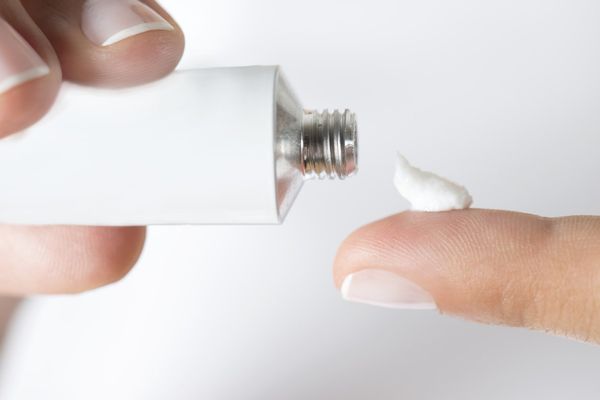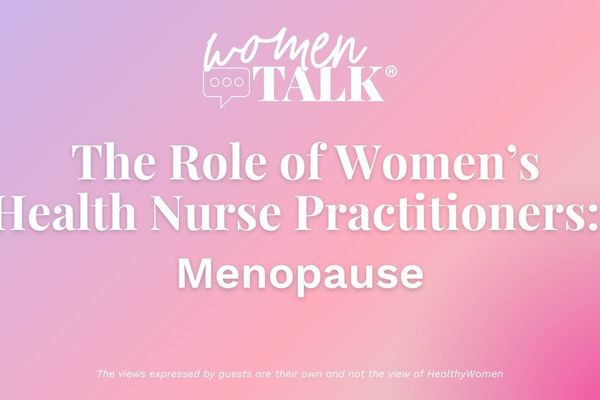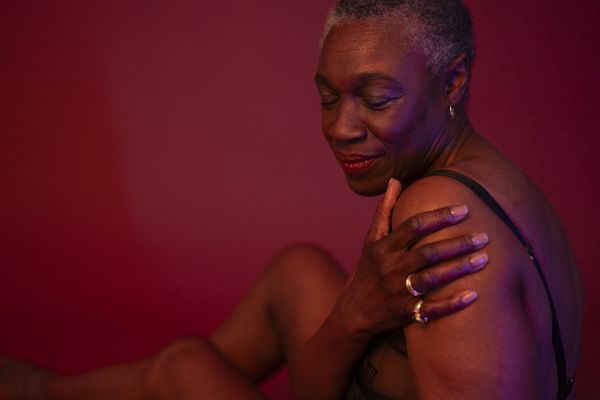There's a reason they call it "the big change."
Menopause is a big deal in a woman's life, and it comes with physical and emotional changes that can affect not just her, but those who love her. But it's something people don't talk about much — so not only do women often not understand what they're going through, but the men in their lives understand it even less.
We reached out to Mary Jane Minkin, M.D., host of the menopause: unmuted podcast and member of HealthyWomen's Women's Health Advisory Council, to get her insight on what the men in your life should know about this significant transition.
1. Women generally stop having their periods around age 51, but it’s different for everyone.
Menopause itself is technically just one day: the one-year anniversary of a woman's final period. The symptoms leading up to this point are actually called perimenopause. Menopause usually happens between the ages of 49 and 52, but it may occur naturally at any age between 40 and 60.
2. The big change is a big deal.
Menopause will eventually occur naturally for any woman who reaches a certain age, but it can also happen early as a result of external factors like a hysterectomy or certain cancer treatments. But, regardless of when it comes, it's always a huge change in a woman's life, and it can be an emotional time on top of the physical and hormonal changes that occur. Many women grieve the loss of their childbearing years, their youth or a part of their lives they associate with their femininity. It's important to understand this change is a complex one and have patience with the menopausal women in your life.
3. Hot flashes make you feel like you’re on fire.
Imagine standing there, minding your own business, and suddenly feeling like your entire body is engulfed in flames. That's what hot flashes are like — and they're no fun. At least half of women experience hot flashes around the time of menopause. While women experience hot flashes for seven years on average, about 10% of women can experience hot flashes for more than 10 years, according to Minkin. Since hot flashes can make it hard to sleep, it can help to keep your bedroom cool at night.
4. Menopause can make you forgetful or irritable.
Many perimenopausal women experience forgetfulness and mood swings. The good news is that once they're through the transition, they usually return to their baseline. Some women also experience mental health issues as they go through menopause. This has been linked to hormonal changes and is most common among women who've had mental health issues in the past. Women who show signs of depression or other mental illness should be encouraged to see a therapist for treatment.
5. When it comes to sex, menopause might kill the mood.
During perimenopause, a woman's ovaries stop producing estrogen, which can lower her libido and cause dryness and thinning in the vagina that can make sex painful. These changes can take the joy out of sex for both partners — but it doesn't have to. Luckily, many women find relief with vaginal estrogen products or over-the-counter remedies such as moisturizers and lubricants.
6. Your appearance might change after menopause.
Everybody knows about the wrinkles that come with age, but that's not the only change that comes with menopause. Many women lose some hair on their head and body and grow a bit of hair on their face. It's also common to gain between five and eight pounds, which are often concentrated in the belly region. "So even if they haven't changed their numerical weight on their scale, their clothes may fit differently," Minkin said. This is another part of menopause that can be challenging for some women to accept.
7. Menopause can make you sick.
Menopause raises a woman's risk of heart disease, stroke and osteoporosis. So if a woman in your life hasn't been getting regular checkups and health screenings, this is a good time for her to start. Postmenopausal women are also more prone to urinary tract infections, but vaginal estrogens may help.
8. A healthy lifestyle helps.
A healthy lifestyle makes everything better, and menopause is no exception. To make the change go more smoothly with fewer symptoms, couples may want to adopt some healthy habits together. Research shows that people are more successful at making healthy changes if their partners make them too. Smoking can also make menopause symptoms worse, so if a woman in your life plans on quitting smoking, now is the perfect time. Women may also want to ramp up their diet and exercise routines since physically active women have fewer menopause symptoms.
9. Medication might provide relief.
Some over-the-counter and herbal remedies may combat menopausal side effects. If these don't work, there are always prescription medications. Since many doctors do not fully understand menopause, it may be a good idea to find a menopause clinician.
10. This might even be a change for the better.
Menopause is one of many ups and downs people experience in a relationship. Getting through it can be a challenge for a woman and those who love her, but once she does, she'll have some of her best years still ahead of her. In fact, women report feeling happier and more confident after menopause than 10 years before.
- Menopause Symptoms Are Far From Universal - HealthyWomen ›
- What You Need to Know About Menopause - HealthyWomen ›
- Almost Half the World Will Go Through Menopause. Let's Talk About ... ›
- Menopause ›
- How to Support Women Going Through Menopause - HealthyWomen ›
- What Every Woman Should Know About Menopause - HealthyWomen ›
- Facts About Menopause - HealthyWomen ›







